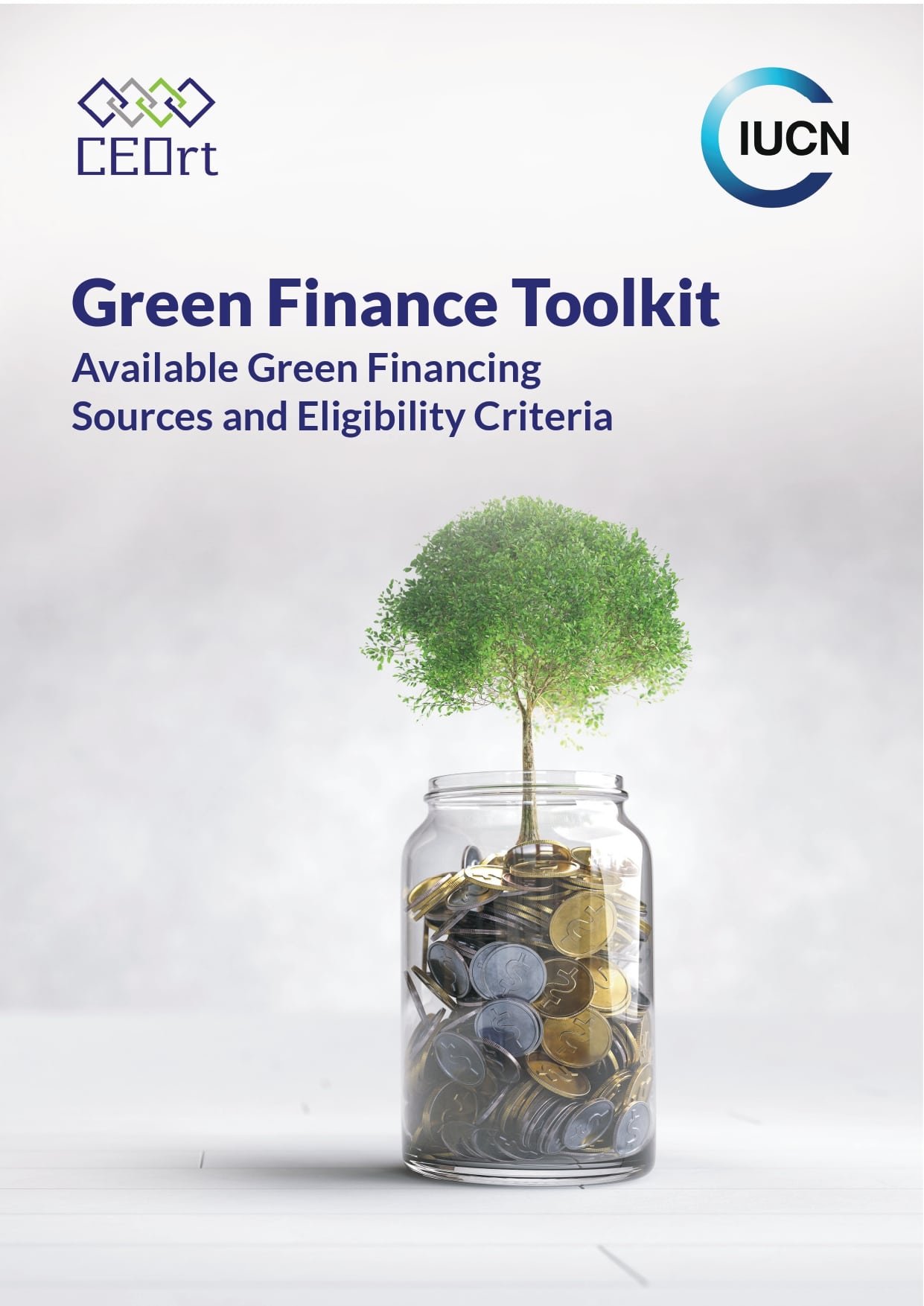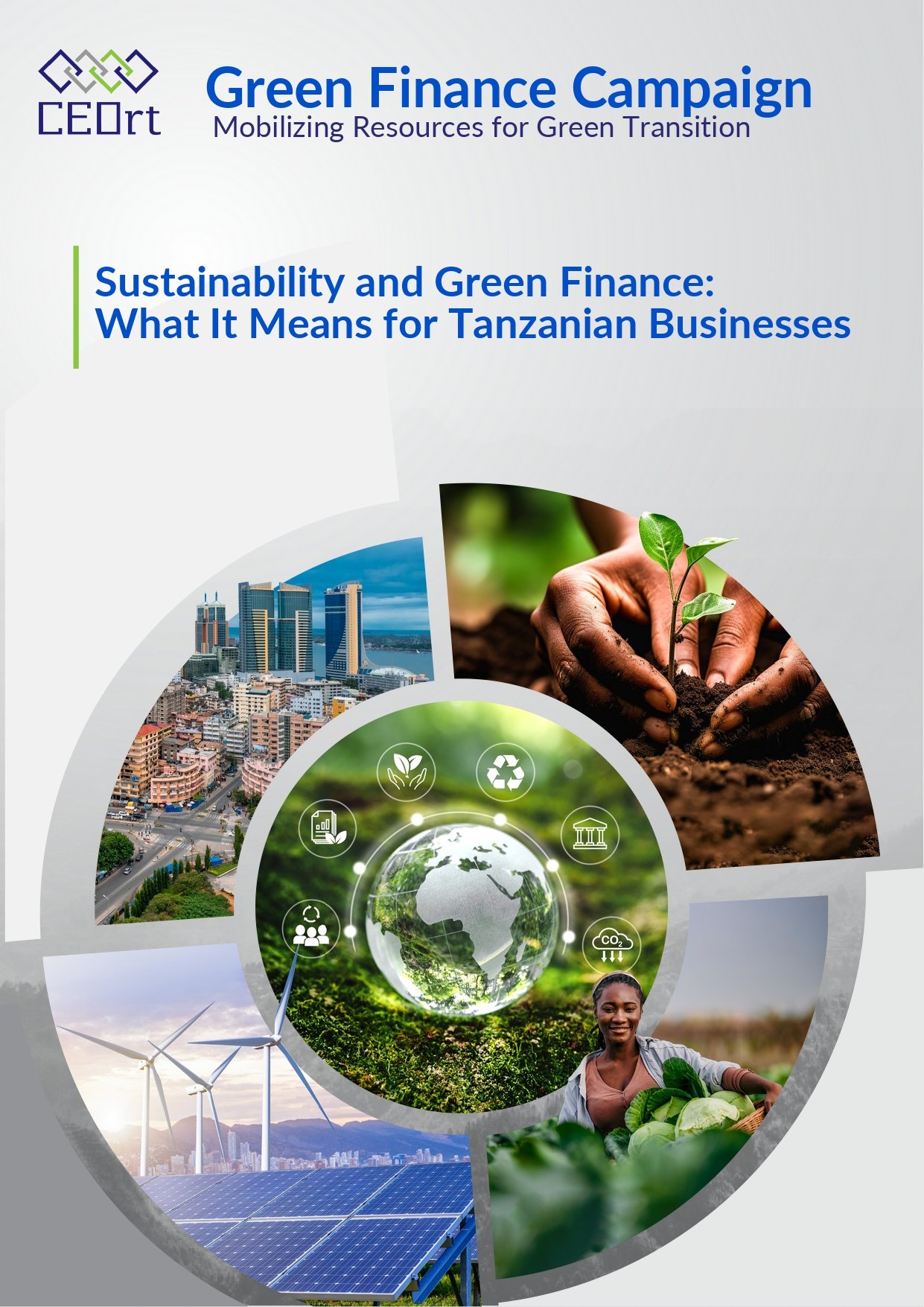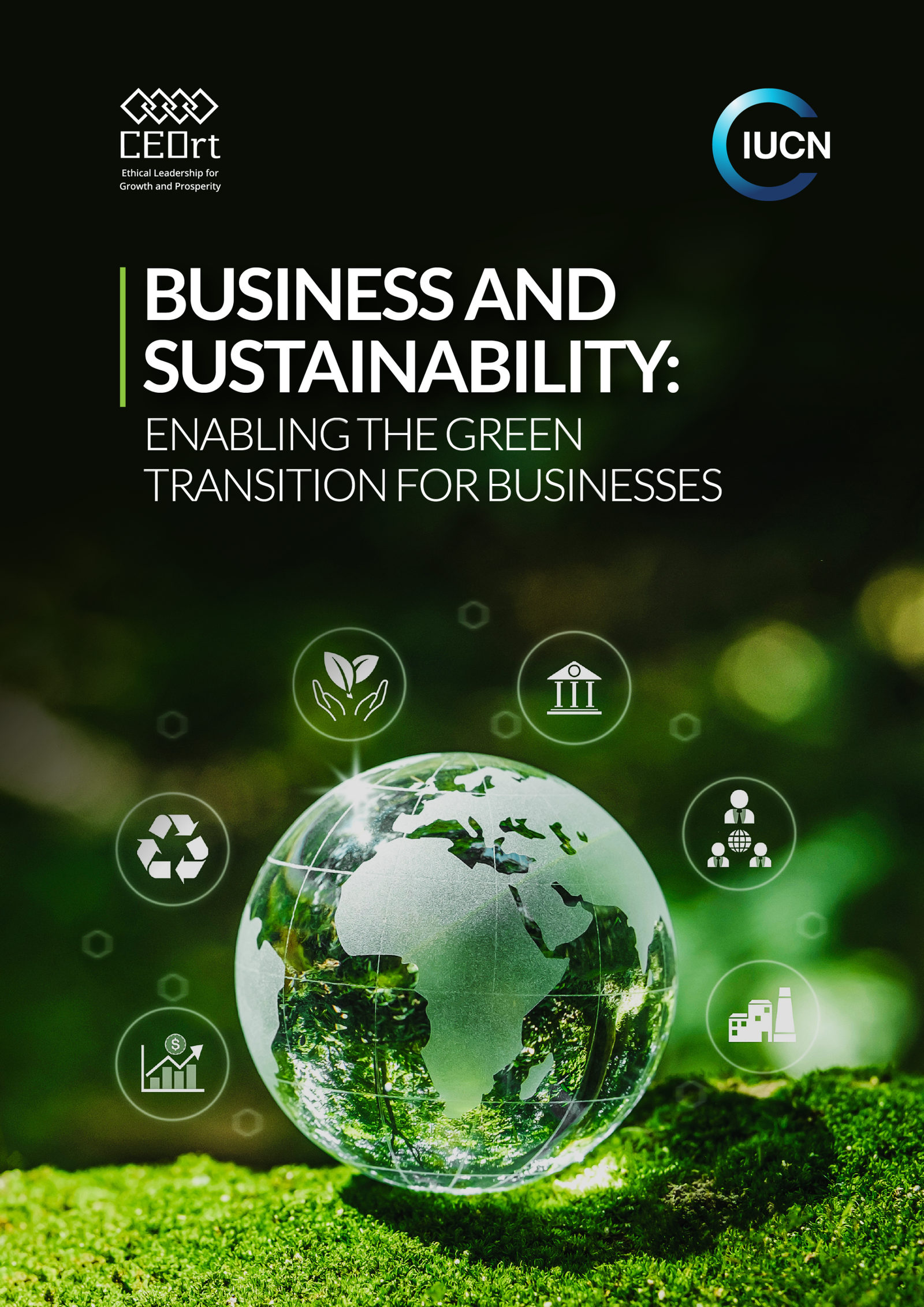Climate Action Agenda
CEOrt is committed to contributing to the country's Climate Agenda by engaging its members in three core areas: Sustainable Finance, Access to the Market, and Business Performance. CEOrt’s vision under the climate agenda is that 30% of CEOrt members have started the journey to carbon neutrality by 2030.

As Tanzania accelerates efforts to achieve its National Climate Change Strategy and Vision 2050, the role of the private sector in financing climate-aligned development has never been more important. Yet for many businesses, understanding what qualifies as a “green” initiative and how to access the capital to support it, remains a challenge. The Green Finance Toolkit is a practical resource designed to close this gap. Developed to support businesses of all sizes, it offers step-by-step guidance on how to identify climate-smart projects, structure investment-ready proposals, and navigate available financing opportunities across Tanzania and beyond. Whether you’re exploring renewable energy, climate-smart agriculture, water resilience, or circular economy models, this toolkit equips you with the knowledge and tools needed to align with national climate goals, meet investor expectations, and unlock capital for sustainable, long-term growth.

The Green Finance Toolkit 1 is the first in a series by CEOrt, developed under the Green Finance Campaign with support from IUCN. It offers a practical introduction to green finance, explaining its importance and how Tanzanian businesses can use it to support sustainability goals. Designed to build awareness and action, the toolkit outlines key concepts, opportunities, and local applications to help drive climate-smart investments and support the country’s transition to a low-carbon economy.

Sustainability is no longer a nice-to-have—it’s a strategic advantage. As global finance shifts toward green priorities, Tanzanian businesses that embed ESG principles can unlock investment, reduce operational costs, and stay competitive in a changing market. This piece reveals how forward-thinking companies are turning sustainability into a growth engine—and why now is the time to act.

Suhara Transport’s sustainability journey proves that cutting emissions and boosting efficiency isn’t just a necessity—it’s a competitive edge. With Tanzania’s logistics sector producing 6.78 million tons of GHG emissions annually, meeting the country’s 30-35% reduction target by 2030 is critical. Failure to adapt risks lost market access, restricted funding, and diminished global standing. Suhara’s success shows that sustainability drives not only compliance but also operational excellence, customer trust, and long-term growth.

The current cost of building adaptive capacity and enhancing climate-resilience measures in Tanzania is estimated to be USD 150 million per year. Achieving a green transition demands collaboration between policymakers and stakeholders to drive policies that empower businesses and communities to move beyond business-as-usual practices. This study aims to enhance existing knowledge on the green transition for businesses, offering actionable recommendations to unlock new opportunities and drive sustainable growth.
Over 1 million species are at risk of extinction by climate change. With the increasing urgency of the climate change agenda, we recognize the opportunity for business leaders to take the lead in driving responsible climate action. We explored this in detail at our recent members’ engagement with keynote speaker H. E. David Concar, British High Commissioner.

Exploring Business Opportunities Presented by Climate Change
The scientific evidence on climate tipping points has become too risky to bet against as the growing threat of irreversible climate change creates a compelling story for political and economic action on emissions. The Government of Tanzania has also committed to targeting 30-40% carbon reduction by 2030. So, what is the role of the private sector here? In decarbonizing our economies, there is definitely an opportunity for business leaders to drive the climate change agenda by prioritizing environmental impacts. Recycle signs and garbage bins will not cut it – low-carbon transition creates opportunities for efficiency, innovation, and growth in business. Tanzania already has amazing natural assets, offering new opportunities for businesses to seize.


